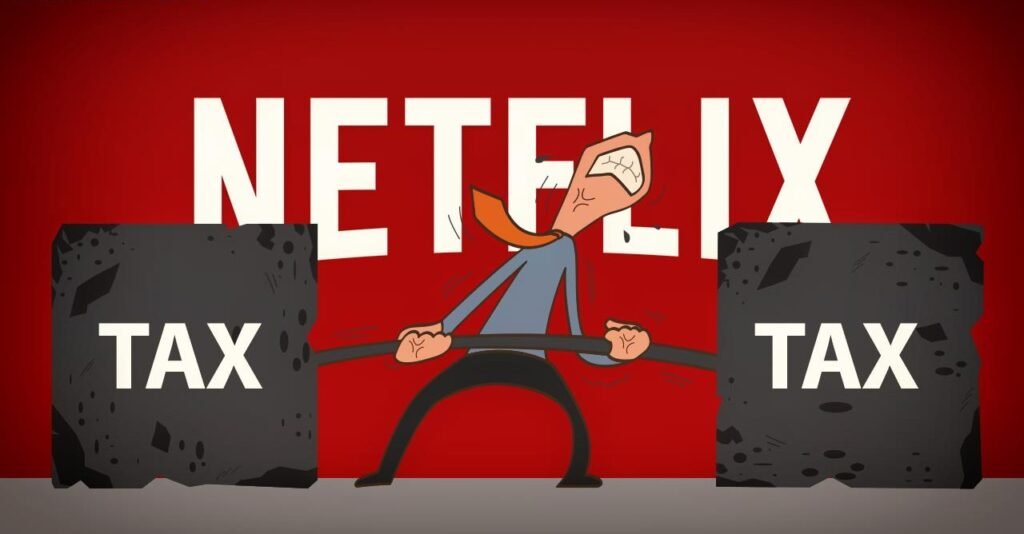August, 2025 – Netflix Headquarters

Los Gatos Explores Netflix Levy Tax and Other Corporate Revenue Solutions
The Town of Los Gatos is facing a growing fiscal challenge. According to projections, the town could experience a structural deficit of $5.5 to $6 million over the next few years. This deficit threatens essential public services and amenities, from library programs to homelessness initiatives. To maintain the quality of life for residents, town leadership is exploring new revenue sources, including a Large Corporation Footprint Tax, sometimes referred to as a “Netflix levy tax.”
With guidance from Vice Mayor Rob Moore, students [Your Name] and James have played a key role in crafting responses, brainstorming potential strategies, and considering practical implementation measures for the proposed levy. The effort combines community input, research on other municipalities, and planning to ensure fairness and sustainability.
The Problem
Los Gatos relies heavily on property and sales taxes, but these revenues are becoming increasingly stagnant. Meanwhile, costs for retirement and post-job benefits continue to rise. In the past, budget shortfalls were addressed by drawing from reserves and cutting services, but projections indicate deficits will continue to grow unless new revenue sources are implemented. Without intervention, essential services could face reductions, which would be both unpopular and fiscally irresponsible.
Potential Solutions
The town is considering several models for generating new revenue from large corporations operating within Los Gatos:
- Square Footage / Commercial Space Tax: Levying a tax on corporations occupying over 10,000 square feet of commercial space.
- Employee Head Tax: A flat tax per employee (e.g., $20 per person) to fund municipal needs.
- Traffic or Commuter Impact Fees: A congestion-based tax on corporations whose operations contribute significantly to local traffic.
- Gross Revenue-Based Tax: Similar to San Francisco’s gross receipts tax.
- Digital Service Tax: Like Maryland’s approach to digital advertising revenue.
- Other models: Facility or commercial rent taxes (NYC), payroll taxes targeting high salaries (Seattle), parking lot taxes, or taxes on excessive CEO pay (Portland).
Each option has been evaluated based on legal feasibility under California law, potential revenue generation, and political viability, including avoiding claims of discriminatory taxation or double taxation.
Looking to Marin County and Other Examples
Several nearby municipalities provide models for successful corporate contributions:
- Marin County implemented targeted levies that incentivized corporations to invest in local community programs.
- Cupertino and Mountain View have partnered with Apple and Google, generating millions for transit projects and affordable housing.
- San Jose has seen corporate funding support arts initiatives and social services, demonstrating how direct partnerships can benefit local communities.
Next Steps
Los Gatos will continue refining these proposals, estimating potential revenue ranges, and developing strategies to communicate the benefits to the public. The goal is to ensure that any new tax or levy not only supports essential services but also strengthens community programs, such as youth initiatives, senior programs, affordable housing, and public infrastructure.
By combining thoughtful policy design with community engagement and corporate partnership, Los Gatos aims to secure a sustainable fiscal future while maintaining the amenities and quality of life that residents expect.


Hi, this is a comment.
To get started with moderating, editing, and deleting comments, please visit the Comments screen in the dashboard.
Commenter avatars come from Gravatar.